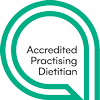Make 2021 the year you stop dieting for good!
As 2020 draws to an end, many people will find themselves making resolutions for 2021. Diet and weight loss typically feature at the top of the list. While it’s natural to start off the New Year thinking about the goals you want to set for the coming year, I’d like to challenge you to make a new New Year’s resolution not to diet after the celebrations are over! This is because dieting is counterproductive and harmful. If you need to remind yourself why, check out my previous blog diet culture, what is it and why is it harmful?
Letting go of dieting and the diet culture is also an important step towards becoming an intuitive eater because actively trying to lose weight interferes with tuning in to your body’s hunger and fullness signals. But it can be very frightening, particularly if chronic dieting has been a way of life for many years.
Letting go of food restriction does not mean you won’t be able to stop eating.
If you worry that when you stop dieting or restricting the food you eat that you won’t be able to stop eating – particularly foods you’ve been used to restricting like cake, chips, chocolate, ice cream and co. – let me reassure you. Remember that dieting or restricting food intake often triggers overeating. In the first few days/weeks after you stop dieting, you might decide to eat (and enjoy eating) foods you deprived yourself of for so long. But it’s unlikely you will eat just these foods all day, every day. Once you stop restricting these foods, you no longer feel deprived and because you know you can have them any time you want, they become much less interesting. You will also crave and want to eat other foods.
How to start ditching diet culture
Ditching diet culture is not easy – it’s everywhere – sometimes in overt forms, sometimes in more subtle forms and it’s supported by a multi-billion diet industry that profits from people buying into new ways to lose weight. But the good news is that it is possible!
Here are six steps that will bring some peace and distance from diet culture.
Step 1: Make a new New Year’s resolution not to diet after the celebrations are over!
Don’t set diet resolutions or try out the latest diet! Doing so is just setting yourself up for disappointment – not because you lack willpower, but because dieting is counterproductive and harmful. Instead, why not take some time to reflect on the effect dieting has had in your life. How much time, energy and money have you invested in dieting? Did dieting make you happy or did it just make you more and more anxious, worrying about everything you put in your mouth? What effect did it have on your relationship with your partner, kids, friends and colleagues?
Step 2: Recognise diet culture
Start recognising the different forms diet culture takes on – you’ll be amazed at how deeply ingrained in society it is. You might like to make a list of places diet culture can be found. You’ll find it in women’s magazines, conversations with family, friends and colleagues, words like “clean eating”, “detox”, lifestyle blogs, just to name a few. Be wary of the word “wellness” which is often code for diet culture. It’s so frequently used that the line between “health and wellness” and diet culture often gets blurred.
Remember, when we believe that health is only possible by eating certain foods or at certain times of the day, we forget the important psychological and social components of health, including eating for pleasure, eating with family and friends, less worry about food etc.
Step 3: Set boundaries around diet talk with your partner, family and friends.
Have you ever noticed how often a conversation with a friend, family member or colleague turns to diet talk? Diet talk (and anti-fat talk) is culturally normalized, especially among women. Family, friends and colleagues talk about feeling guilty for eating this food or that all the time. Weight gain, weight loss, comparison, self-criticism have become “normal” topics of conversation. It’s not surprising when you think we’re living in a society in which thinness is valued and living in a larger body is much harder, thanks to fat shaming, weight bias and weight stigma.
Certainly, many of us have commiserated about dieting and what we frequently see as body “flaws”. It’s a way of bonding for women and refusing to participate in it can be really difficult. So, what should you do? Well, in many situations the best course of action is simply not to engage in conversations on dieting, body size and shape. You can do this by gently switching the focus of the conversation or if you are in a group, by politely excusing yourself. If you’ve already started your Intuitive Eating journey, you could say something like: “I don’t diet anymore, I just eat what I feel like and according to my appetite”.
The important thing to remember is that everyone has the right to treat and talk about their own body however they want. If someone wants to lose weight because they’re experiencing great pressure to do so or struggling because of issues relating to their body, that’s their decision.
Step 4: Unfollow social media accounts that promote dieting and food restriction
Social media is a driving force behind diet culture and the constant pressure to fit a certain body ideal. Have a look at your feed. What proportion are devoted to dieting and diet culture? Are people promoting food restriction and food rules? Do they recommend a punishing exercise routine? Reflect on how you feel after scrolling through social media accounts focused on beauty or fitness. If you find yourself feeling more depressed, anxious, or motivated to engage in diet behaviour after scrolling, unfollow! You could also look for accounts that promote body diversity. By letting go of messages that worship dieting and thinness and identifying those that promote a healthier body image, focussing on your health will be so much easier.
Step 5: Throw away the tools of diet culture
Throw away the tools of dieting – all the things that prevent you from tuning into your body’s physiological cues of hunger and fullness. That means throwing out the bathroom scales, meal plans, diet books, tracking Apps etc. This can be a really frightening step, especially if you’ve been dieting or restricting food for many years. So, if you don’t feel ready to do this, try putting these things away out of sight or write down a list of your dieting tools and start by throwing out each tool one by one over a time period that feels comfortable for you.
Step 6: Give yourself a break
It will take time to ditch dieting – so this is where giving yourself a break and showing yourself some self-compassion can go a long way. Often, we’re great about showing our friends some compassion when they find themselves in a difficult situation – we remind them of their great qualities, skills, about what they’ve accomplished, but we’re not very good about doing this for ourselves. So, when you’re finding it difficult to let go of dieting, if you are still thinking about trying “one last diet”, don’t give yourself a hard time. Show yourself some compassion. It may sound self-indulgent, but learning to develop self-compassion is another important skill in becoming an intuitive eater.
If you are worried about food and eating over the holidays, you could start by acknowledging your feelings. It’s understandable that you feel this way when chronic dieting has been a way of life for some time. Ask yourself if there is something you can do to make yourself feel calmer and more at ease? What might help you stop worrying so much? Is there something you can do that will help you focus more on enjoying the time you spend with the people you love?
Ready to take the next step? Contact me and request a complimentary call to find out more about Intuitive Eating and how it can help you truly nourish yourself – body, mind and soul.






